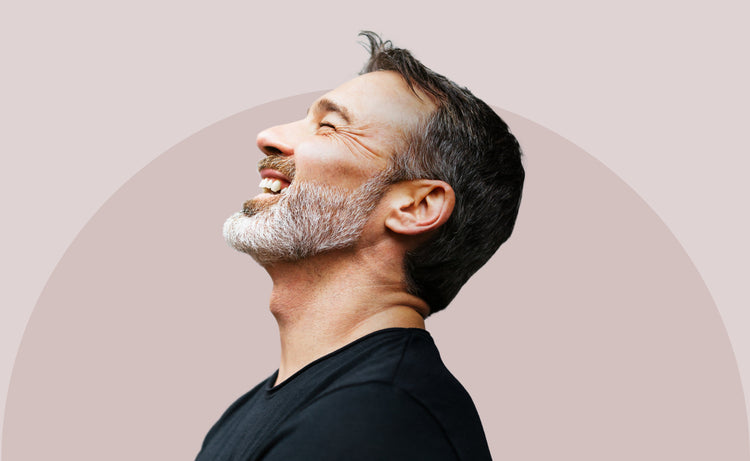Sleep Apnea:
An Eye-Opener for Sleep Health.
If you’ve been in the dark about good sleep, this is your wake-up call. The right rest is crucial to your total wellness.
Don’t lose your best days to restless nights. Better health starts with healthy sleep. Take the sleep apnea quiz to find out if you have obstructive sleep apnea. OSA can cause severe health problems.
Take the Sleep Apnea Quiz
Why Is Sleep Wellness Important?
Better rest benefits your whole health picture.

Physical Health With Proper Rest.
Feel it in your energy, stronger immune response, and lower the risk of heart and other diseases.

Mental Health With Proper Rest.
Enjoy more clarity, better moods, and less likelihood of depression or anxiety.
Understanding Sleep Quality.
Deep and REM sleep are what you need to recharge your batteries and start your day off right. Interrupting these states leads to low quality sleep, with potentially serious long-term impacts.
Take the Sleep Apnea Quizdisorders among U.S. adults.
What Are The 5 Types of Sleep Disorders?
If you feel tired throughout the day, you could have one of these conditions that require treatment for a better quality of life.
The inability to fall or stay asleep.
Interrupted breathing that reduces sleep quality.
Extreme daytime sleepiness.
Uncontrollable urge to move legs while sleeping.
Unusual acting out and movement while dreaming.
“This has been an eye-opening experience. I had no idea sleep apnea was my problem. Thought I just snored loud.”
Shana G., Lofta client
What Is Sleep Apnea?
Simply put, it keeps you from breathing normally while you sleep, which means you don’t get the rest you need.
It can be because your airway is physically blocked (obstructed sleep apnea) or because your brain is giving the wrong breathing signals (central sleep apnea).

Normal breathing Keeps you at rest through the night.

Obstructive breathing Disrupts sleep cycle, preventing rest.

Dangers of
Sleep Apnea.
Daytime tiredness is just the beginning. Sleep-disordered breathing can be a stealth health hazard, increasing the risk and effects of many serious conditions.
Sleep Apnea Quiz
Do I Have Sleep Apnea?
Take the short “Do I have sleep apnea quiz” from sleep expert Lofta to see if you’re at risk.
Can Sleep Apnea Be Cured?
While there are surgical options, non-invasive CPAP therapy brings relief to many who suffer from sleep apnea. And with Lofta, you can go from diagnosis to treatment without leaving home.
 Start
StartTreatment
Shop a CPAP Machine and CPAP Accessories you need to start sleeping healthier again.
 Receive Support
Receive Support
Ongoing guidance can optimize therapy and ensure sleep success. Read our Sleep Health Resources for a good night’s sleep.
Better Nights. Brighter Days.
Hear from other Lofta clients who’ve reclaimed their rest with CPAP therapy.
Better sleep, better me.
This has helped me so much!! Not only has it helped my sleep but I’m not as irritable and I feel better overall. It comes with everything you need to get started and the Lofta staff is always just a call away to help.
The thing I never knew I needed.
After getting my cpap I have been sleeping better and longer and wake up feeling more rested with more energy!
This machine changed my life!
I didn’t realize the poor quality of my sleep, not to mention the danger I was in... I was tired all the time and had very low energy, I am now sleeping through the night and getting high quality sleep…and I’m not fatigued all day long. This machine is amazing!
Understanding Sleep Health
How does sleep affect your health?
What is sleep deprived?
How much deep sleep do you need?
Can sleep apnea cause high blood pressure?
Are five hours of sleep healthy?
How to improve sleep hygiene?
How does sleep affect your physical health?
What causes sleep disorders?
Is sleep apnea dangerous?
What are the benefits of sleep?
What foods cause sleep apnea?
Does smoking cause sleep apnea?
Can sleep apnea kill you?
Does stress affect sleep apnea??
Your risk score:

Recommendations:
What does this sleep quiz score mean?
This Sleep Apnea quiz is a modified version of the Stop-Bang questionnaire designed to assess risk for obstructive sleep apnea (OSA).
This quiz cannot diagnose obstructive sleep apnea, but it is designed to help you understand your risk level for OSA and whether or not you should seek further consultation for Sleep Apnea.











